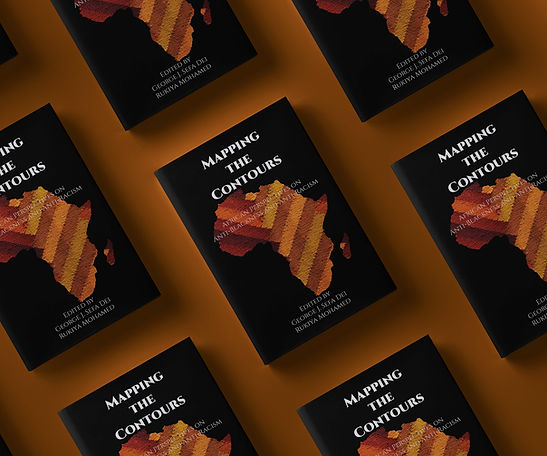This edited collection examines the significance and implications of anti-Black racism and anti-African racisms for schooling and education in African contexts. It seeks to address the following questions: How do we speak about race, racism and anti-Black racism in Africa? In what ways do practices of anti-Black racism converge and diverge from anti-African racism? How might we understand anti-Black racism in majority Black countries? How does anti-Black racism connect with interstices of difference (i.e., class, gender, sexuality, ability, language, religion, etc.) to offer complex readings of social oppression and resistance in African contexts? In the face of silencing courage, denials, deflection and organized push back we must reflect on the dialectic of theory and practice in schooling and education to respond to global anti-Black racism. Papers in this edited collection will explore the connections and possibilities of decolonial pedagogies and critical anti-racist practice to respond to the specificity of anti-Black and anti-African racism. In a current context of the globalization of anti-Black racism there is a need for a more nuanced examination of anti-Black and anti-African racisms in order to develop more effective ways of addressing systemic colonial oppressions. The various chapters examine the ways anti-Black and anti-African racisms are rooted in African histories of European colonialization and enslavement, African cultural and political narratives as well as spiritual memories of African existential realities, and the continuing existence of Black life and the African humanhood today.

George Dei’s and Rukiya Mohamed’s Mapping the Contours: African Perspectives on Anti-Blackness and Anti-Black Racism is an engaging and insightful collection that is firmly grounded in the Black Radical Tradition. Resisting the fantasy projections and colonialist propaganda of whiteness which assail the pedagogical affirmation of a multiplicative Black ontology, the text calls for a clear-eyed African and Black self-interrogation of the political and liberatory dialogic of essentialism and anti-essentialism. Calling for a change in the theorizing of Blackness, the collection takes seriously Fanon’s criticism that racism in Africa and elsewhere is one of the pitfalls of anti-colonial national culture. Nuanced and sophisticated at every turn, this book incorporates and extends the metaphors of time, place, and space to develop critiques and visions of futures in which Africans and Black people can breathe, thrive, and experience themselves as ontologically whole.
Tamari Kitossa, Ph.D., Associate Professor, Brock University
Some of the most productive intellectual spaces are carved when two or more seeming disparate intellectual fields intersect. What happens when anti-Black racism – both as a discourse and practice – is situated squarely in Africa? That is, what happens when intellectual spaces are created so that African scholars can reflect on anti-Black racism and anti-Blackness not in the Global North or in the Diaspora, but within the continent of Africa? The answer is Mapping the Contours: African perspectives on Anti-Blackness and Anti-Black Racism. “Racism is relevant in Africa,” the editors write, “and we cannot sweep racial issues under the carpet.” So be ready my gentle reader for a methodologically innovative, scholarly grounded, and exceptionally courageous book. This is an insider book, edited and written by African scholars, so for those who dare to stare the ugly nature of anti-Black racism in the continent in the face, this is your book, which is not only timely and highly recommended but urgently needed.
Awad Ibrahim, Ph.D., Curriculum Theory Professor, University of Ottawa. Author of Black Immigrants in North America: Essays on Race, Immigration, Identity, Language, Hip-Hop, Pedagogy, and the Politics of Becoming Black.

Ghanaian-born George Sefa Dei is Professor of Social Justice Education & Director of the Centre for Integrative Anti-Racism Studies at the Ontario Institute for Studies in Education of the University of Toronto (OISE/UT). He is a Fellow of Royal Society of Canada. In June of 2007, Professor Dei was installed as a traditional chief in Ghana. His stool name is Nana Adusei Sefa Tweneboah.
Rukiya Mohamed is a Somali Muslim educator, researcher and community member. She is PhD candidate in the Department of Social Justice Education at the Ontario Institute for Studies in Education of the University of Toronto (OISE/UT). Her research interests centre African-centered schooling and Black Muslim futurities.
